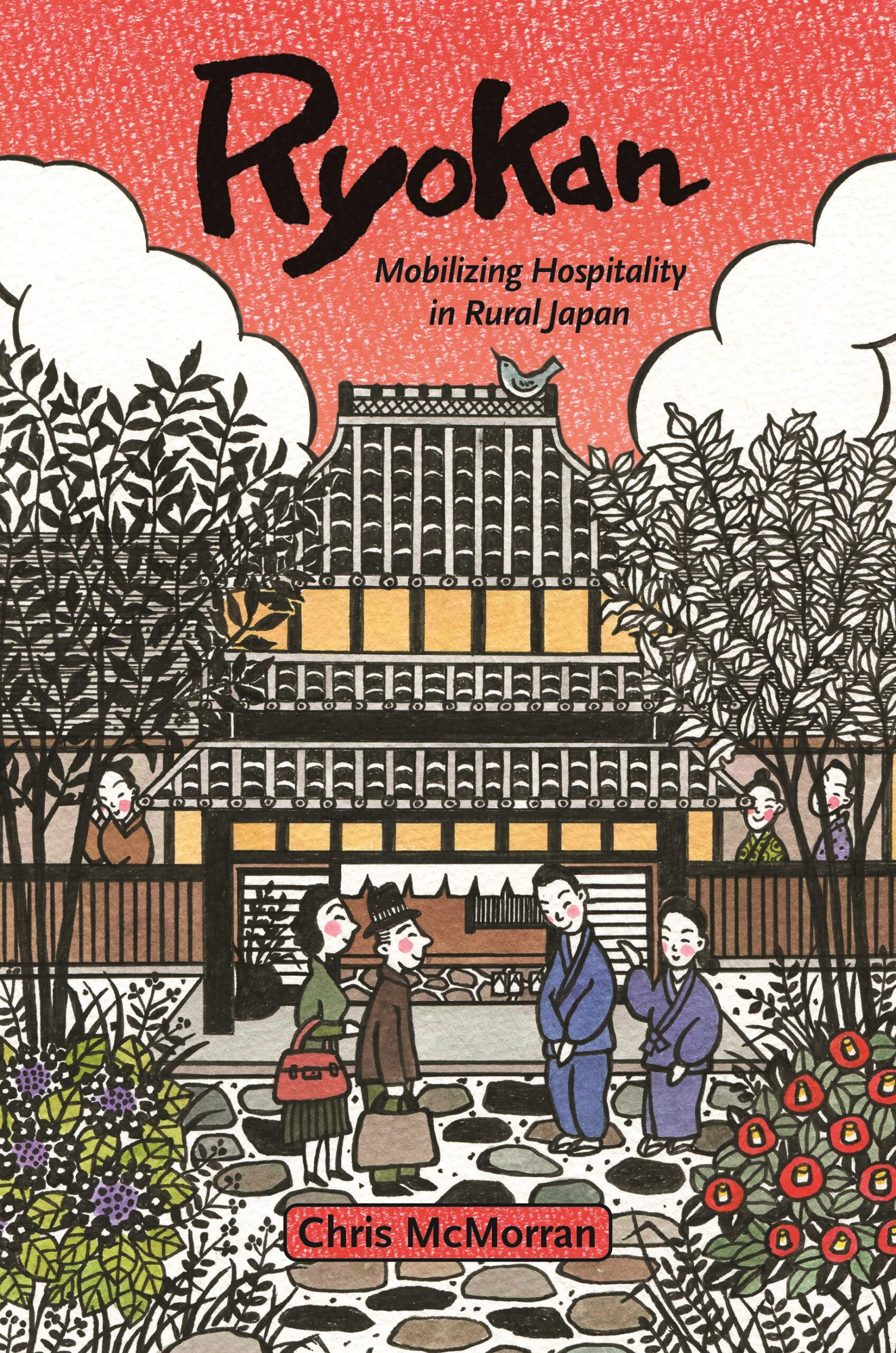Ryokan: Mobilizing Hospitality in Rural Japan
- About the Book
-
Amid the decline of many of Japan’s rural communities, the hot springs village resort of Kurokawa Onsen is a rare, bright spot. Its two dozen traditional inns, or ryokan, draw nearly a million tourists a year eager to admire its landscape, experience its hospitality, and soak in its hot springs. As a result, these ryokan have enticed village youth to return home to take over successful family businesses and revive the community. Chris McMorran spent nearly two decades researching ryokan in Kurokawa, including a full year of welcoming guests, carrying luggage, scrubbing baths, cleaning rooms, washing dishes, and talking with co-workers and owners about their jobs, relationships, concerns, and aspirations. He presents the realities of ryokan work—celebrated, messy, ignored, exploitative, and liberating—and introduces the people who keep the inns running by making guests feel at home.
McMorran explores how Kurokawa’s ryokan mobilize hospitality to create a rural escape from the globalized dimensions of everyday life in urban Japan. Ryokan do this by fusing a romanticized notion of the countryside with an enduring notion of the hospitable woman embodied by nakai, the hired female staff who welcome guests, serve meals, and clean rooms. These women are the face of the ryokan. But hospitality often hides a harsh reality. McMorran found numerous nakai in their 50s, 60s, and 70s who escaped violent or unhappy marriages by finding employment in ryokan. Yet, despite years of experience, nakai remain socially and economically vulnerable.
Through this intimate and inventive ethnography of a year in a ryokan, McMorran highlights the importance of both the generational work of ryokan owners and the daily work of their employees, while emphasizing the gulf between them. With its focus on small, family-owned businesses and a mobile, vulnerable workforce, Ryokan makes an invaluable contribution to scholarship on the Japanese workplace. It also will interest students and scholars in geography, mobility studies, and women’s studies and anyone who has ever stayed at a ryokan and is curious about the work that takes place behind the scenes.
- About the Author(s)
-
Chris McMorran, Author
Chris McMorran is associate professor of Japanese studies at the National University of Singapore.
- Reviews and Endorsements
-
- This is a well-rendered ethnography of a fascinating location with timely and significant lessons about the labor of small business, the possibilities of rural revitalization, the gendered and class varieties of precarious work, and all that lies behind the soothing experience that so many of us have enjoyed while soaking our bodies in Japanese hot springs.
—William W. Kelly, Yale University - Ryokan, the iconic inns of Japan, have never before been the object of such a comprehensive English-language study. Chris McMorran explores the meanings of this culturally loaded space as well as the behind-the-scenes lives of ryokan owners and workers. The book’s ethnographic insights are especially valuable, yielding a deep and empathetic understanding of the exploitation that hides behind the elegant gardens, tatami-matted rooms, and gracious service. Looking beyond the ryokan itself, McMorran introduces us to the cultural politics and history of the Japanese countryside, a part of Japan often neglected in the media's pursuit of Cool Japan.
—Laura Miller, University of Missouri–St. Louis - This gem of a book draws readers into the lives and rhythms of a Japanese ryokan, and more broadly, contemporary Japanese society. Through McMorran's keen observations, we discern not only the risks in owning an inn at a time of demographic decline and the hollowing out of rural areas, but also the precarious as well as exacting nature of hospitality work for the female employees whose labor constitutes the heart and soul of these enterprises.
—Glenda Roberts, Waseda University
- This is a well-rendered ethnography of a fascinating location with timely and significant lessons about the labor of small business, the possibilities of rural revitalization, the gendered and class varieties of precarious work, and all that lies behind the soothing experience that so many of us have enjoyed while soaking our bodies in Japanese hot springs.





